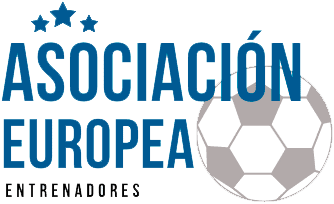You will have the opportunity to perform, voluntarily, your internships in different clubs in Barcelona.
Waiting list
You can pay with a single payment or in terms of 3, 6 or 12 months!
Course endorsed by:

In collaboration with:

Contenido
Presentación
With the High Performance Sports Master (Florida Global University) We will learn to manage the team in the highest difficulties in the world of high competition. Learn to manage your game, your wisdom and your knowledge at different stages of the season.
We will plan, evaluate and develop training programs adapted to the competition. We will apply appropriate methods, strategies, techniques and methodologies to each of the competitions. We will analyze and put into practice the qualities of footballers in the high performance stage.
On the other hand, we will transmit attitudes and values by communicating with our players in an effective way.
Interpret the foundations and manifestations of human psychological development through football.
All this and much more in our University Master's Degree endorsed by the University of Ávila Florida Global University.
Índice
- 1.1 Definition of football and objective of the players
- 1.2 The taxonomy of the game
- 1.3 Cooperation-opposition sport foundation
- 1.4 Individual and collective performance
- 1.5 A step through history and its evolution
- 1.6 Motor radiology in collective sports
- 1.7 Game cycles
- 1.8 The tactics, technique and capabilities of a player
- 1.9 The basic principles and nature of the game
- 1.10 Mechanisms necessary for practice
Module 2. IMPORTANT CONCEPTS OF THE GAME (3 credits)
- 2.1. The space and time
- 2.2 Perception
- 2.3 Tactical mentality
- 2.4 Psychological aspects
- 2.5 The player and intelligence
- 2.6 The creation of collective synergies
- 2.7 The importance of goals and their moment on an emotional level
- 2.8 Talent and its keys
- 2.9 Decision making
Module 3. KEYS OF A FOOTBALL TEAM (3 credits)
- 3.1 The importance of mood
- 3.2 The bases of creating a team
- 3.3 The evolutionary development of a team
- 3.4 Leadership and its ways of achieving it
- 3.5 Player personality types and aspects
- 3.6 The psychology and mind of the footballer
Module 4. FORM AND STYLE OF PLAY (3 credits)
- 4.1. Statistics and importance of factors in choosing playing style
- 4.1.2 The data of a player in a match based on position
- 4.1.3 Ball possession
- 4.2. The position game: A way to understand football
- 4.2.1 Definition and conceptualization
- 4.2.2 Criteria for this way of playing
- 4.2.3. First aspects to take into account
- 4.3. Teams in history with this style
- 4.3.1 World football playing style
- 4.4 Style and principles of positional play
- 4.5 Distribution by zones and spaces
- 4.6 Example on a 433 output system
Module 5. THE POSITIONAL GAME (3 credits)
- 5.1. Start up
- 5.2. The organized attack
- 5.2.1 Objectives per phase depending on ball zone
- 5.3. Objectives by positions of each player and goalkeeper
- 5.3.1 Actions to be expressed by each player in the context
- 5.4. Principles and collective conduct
- 5.5. Superiority in football. Types and ways to get them
- 5.6. Specific principles of positional play
Module 6. THE GAME SYSTEM AND ITS IMPORTANCE (3 credits)
- 6.1 The keys to choosing a system and the importance within the positional game.
- 6.2 The game model and team guide.
- 6.2.1 The principles and sub-principles of a game model.
- 6.3 The universal principles of the game.
- 6.4 The collective game, the basis of a team
- 6.4.1 Build combo attacks
- 6.5 Ways to attack against different defensive styles
- 6.6 The defensive organization after loss
- 6.6.1 Behavior after loss
- 6.6.2 Pressing and folding
- 6.7 Collective defensive fundamentals
- 6.8 Basic defensive structure
- 6.9 Key principles for recovering the ball
Module 7. DEFENSIVE STYLE AND CONDUCT AFTER RECOVERY (3 credits)
- 7.1 The bases of the defensive framework
- 7.2. The defensive form to use and its variants
- 7.3. Principles of organized defense
- 7.4 Orientation of the opponent's game
- 7.5 Types of defensive positioning
- 7.6 Unbreakable defensive collective fundamentals
- 7.7 The role depending on the position on the field
- 7.8 The counterattack and how to exploit it
- 7.9 The favorable and unfavorable aspects
- 7.10 The most important slogans and principles to be successful
Module 8. MANAGING A TEAM (3 credits)
- 8.1 Methodology and teaching styles.
- 8.2 Cognitive training.
- 8.2.1 Meaningful learning
- 8.3 Guided discovery
- 8.4 Creativity
- 8.5 Methodological strategies
- 8.5.1 Ways to condition tasks with an objective
- 8.6 The management and training style of the coach
- 8.7 Ways of communicating. assertiveness
- 8.7.1 The emotional control of the coach
- 8.8 Team management at all times
- 8.9 The missions of the members of the technical body
Module 9. SKILLS AND KNOWLEDGE OF A COACH (3 credits)
- 9.1 Basics of human anatomy
- 9.2 The biomechanics of the human body
- 9.3 Nutrition of an athlete
Module 10. THE KEYS OF A COACH (3 credits)
- 10.1 Effective habits to be a coach
- 10.2 The importance of communication
- 10.3 Active listening
- 10.4 Empathy and assertiveness
- 10.5 Verbal and non-verbal communication
- 10.6 Introduction to the emotions of a coach
- 10.7 The image of a coach and his identity
Module 11. IMPLEMENT A WORK STYLE WITHIN A CLUB (3 credits)
- 11.1 Implementation of the entire necessary process
- 11.2 The global planning to carry it out
- 11.3 Explanation of a methodological guideline based on the evolutionary stage of the player
- 11.4 Education and values within the entity
- 11.5 The style of play and the principles within the quarry
Module 12. FINAL WORK (12 credits)
Requisitos
Graduates/Graduates in Physical Activity and Sports Sciences, qualified coaches and technicians with experience in football.
Professionals with recognized and accredited work and/or professional experience, provided that said experience is related to the competencies inherent to the Master's degree, people related to football who want to specialize in this area.
Metodología
This training program will be carried out taking into account the following points:
Virtual classroom:The courses are taught entirely online. They are carried out through our virtual campus which is accessed from the cover of our website, www.futbollab.com, through the button Access to the Virtual Classroom. From there you can access syllabi, explanatory presentations, demonstration videos, teacher analysis, and tasks that the teachers send and correct.
Tutors: The teachers offer continuous tutoring, establishing telephone and/or videoconference tutoring, explaining any doubts that may arise. They guide your training evolution throughout the course, depending on your profile and level of dedication or study schedule. As we have indicated, the syllabus, videos, articles, interviews with experts are part of your evolution in the course, so you will do periodic exercises that the teacher reviews to give you the clearest idea of the topic being worked on.
Assessment: At the end of the course you will carry out a final project that will encompass all the areas studied and that will always involve the development of a real case, since at FutbolLab we want our courses to be directed at all times to the real training situation that the technicians find themselves in. their teams.
Registration process: Step by step video
To register you only have to do click In the Enroll tab, from there you will be asked to enter your personal data necessary for the academic record and in the final part of the process you will be able to choose the payment format for this program.
Remind you that in this course you can go at your own pace and do it according to your availability, as long as you do not exceed the maximum time to do it, which in the case of master's degrees is 2 and a half years, 18 months for Expert or Technical courses and 7 months for courses that are not in these categories.
It is plenty of time to do it, if you still need more time, you must ask the admissions department for authorization to extend a time. If you get a positive response, the new agreed time will be automatically extended.
You can contact us via email at attention@futbollab.com, by telephone at +34 93438 6000.
If you prefer direct communication via WhatsApp, Click here
Créditos
This master's degree is issued by the Florida Global University and has 60 ECTS Credits (1500 teaching hours).
Information
Do you have any doubt? You can check our section frequent questions, download the Course program or fill out the following form and we will contact you.

